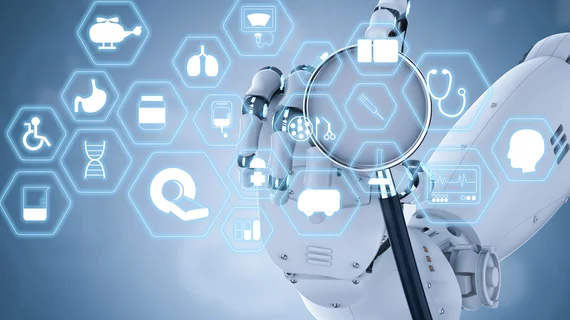Researchers have designed a new AI-powered pathological recognition program that can identify signs of colorectal cancer as well as human specialists, sharing their findings in Nature Communications.
The team trained its program with more than 13,000 whole slide images of colorectal cancer from nearly 9,000 different patients who were originally treated in China, Germany or the United States. To test its effectiveness, the system was then used to detect colorectal cancer—and its performance was compared to that of trained pathologists.
The average pathologist scored an area under the ROC curve of 0.969. The AI system, meanwhile, achieved a score of 0.98.
“The challenges of this study stemmed from complex large image sizes, complex shapes, textures, and histological changes in nuclear staining,” senior author Hong-Wen Deng, PhD, director of the Tulane Center of Biomedical Informatics and Genomics at Tulane University School of Medicine in New Orleans, said in a prepared statement. “But ultimately the study revealed that when we used AI to diagnose colorectal cancer, the performance is shown comparable to and even better in many cases than real pathologists.”
Another set of images—15,000 lung images, to be exact—was also introduced to the AI system to confirm its detection abilities. Again, the system performed well.
“This study is revolutionary because we successfully leveraged artificial intelligence to identify and diagnose colorectal cancer in a cost-effective way, which could ultimately reduce the workload of pathologists,” Deng added in the same statement. He also looked to the future, noting that he and his colleagues are working to make the system more user-friendly before they consider commercializing it.
The group’s full analysis is available here.

